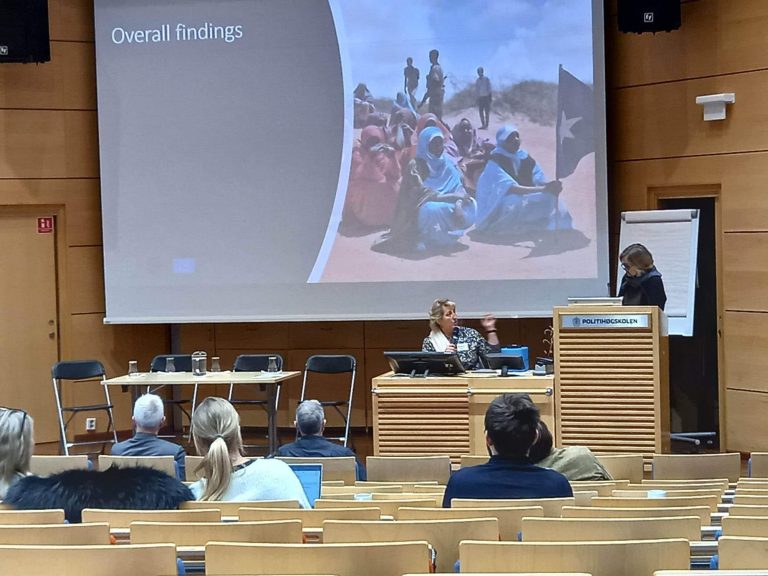The Center held a successful workshop at Politihøgskolen on November 22nd, on the idea:
Photo: ICT4COP
‘Community of Users’
How can Norwegian actors work together to play a more significant role in international police reform processes, considering Norway is in a unique position to influence police reform in ways that build trust with local communities and ensure broader human security.
The ICT4COP Center for Community-Oriented Policing and Post-Conflict Police Reform (ICT4COP Center) invited key Norwegian government and civil society actors to a half-day workshop to address this question and form a ‘Community of Users.’
The panel discussion on challenges working in post-conflict contexts in and with police reform with representatives from policymakers, police, and civil society organizations and a group discussion was helpful in finding the gaps in knowledge and competence.
What we learned from the debrief
Panel members emphasized the importance of this workshop. The workshop is a great foundation and an important conversation starter in the bigger frame of community policing. It was also mentioned that the center should come up with a roadmap for the long term. The center was also encouraged to keep organizing fora to continue this crucial discussion on how Norwegian actors can work together to play a more significant role in international police reform processes.
The debriefing team also discussed that during the next workshop, policy makers/government officials from various ministries as this would allow the center to have more impact on discussions or reforms on international policing or community-oriented policing. The center can familiarize its work with policy makers by arranging meetings with various ministries to talk about ICT4COP and community-oriented policing. Approaching Norwegian embassies in various countries can be an easy way to reach into government agencies/ministries.
It was also mentioned that the role of civil society in community-oriented policing and international police reform cannot be understated. The center should consider investing in building capacity within civil society to work with Police. When incorporating civil society, it is crucial to have an open house discussion. The center should invite people with differing views as this would help
To institutionalize the ICT4COP Center, here are some points to consider;
- Findings/approaches in basic curriculum and training should be made known
- Communicate results openly
- Continue the dialogue and invest in research about the community dialogue approach.
- Look into how the center can practically engage with civil society and policymakers and form a mutual relationship with them.


